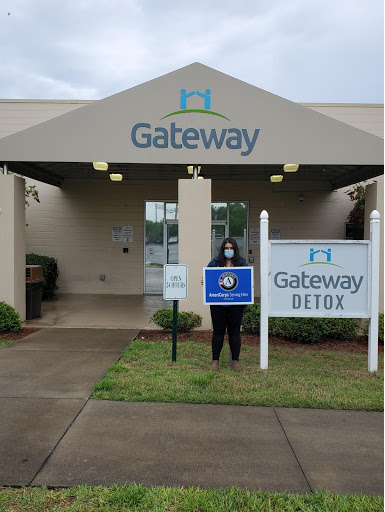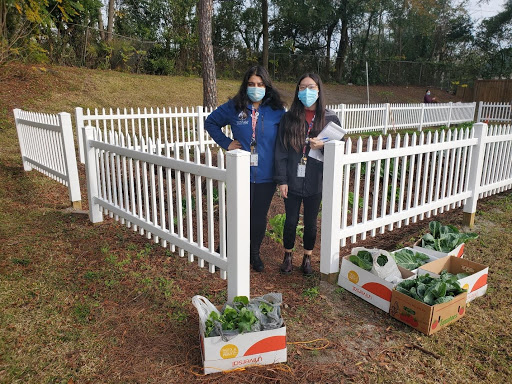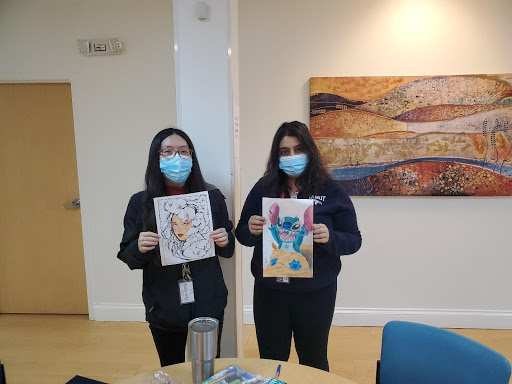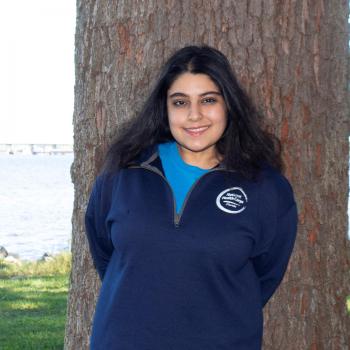The Dark Before the Dawn

the entrance to the Gateway
Detox Building.
The road to recovery from substance use disorder is not a pretty or easy one. For many, that journey begins at the Gateway Community Services Detoxification Center, the only nonprofit medical detox facility in northeast Florida. In nondescript basic pink and blue scrubs, the patients relinquish their few belongings and all tethers to the outside world to begin the long road of substance use recovery as they voluntarily commit to treatment. Some have come after a long night at the Emergency Room after suffering a near fatal overdose, or off the streets after years of homelessness, others were former physicians who had years of medical and drug knowledge, or business corporates who have succumbed to the unrelenting power of dependency and have accepted the need for help. Addiction does not discriminate. They are exhausted physically, mentally, and emotionally. Wracked not only by often severe and unpleasant physical symptoms of withdrawal, they also cope with the mental and emotional burdens of making the decision towards seeking rehabilitation, in a strange place away from friends, family and everything that is familiar, for the chance of a life free from substance use.
As a patient navigator at Gateway, I see the patients at their worst, during their first few days in the detoxification clinic. During individual meeting sessions with patients, I often hear the heartbreaking stories they tell. These include the patient who took his first drink at thirteen and came from a family of lifelong alcoholics, the patient who needs to use painkillers just to cope with the overwhelming stress of homelessness, and the patient who lost his son and has not had a sober night since his passing because reality is often too painful to bear. Countless other stories of childhood trauma, loss, and adversity. And the ongoing pandemic has often only worsened the narratives I hear, including mentions of job and home loss, isolation from friends and family, fear, stress, and turning to the bottle or pills just to be able to cope with it all. The sentiments are all the same, Gateway is often the last hope for recovery for most of the patients I speak with, fearful that they will not be able to find a residential treatment program and be turned back out on the streets. It is here where my role as a patient navigator intervenes which allows me to connect these patients to resources such as housing, healthcare, sober houses, alcoholics and narcotics anonymous groups, food pantries, and more. I often find myself lying awake more nights than not after a busy day at Gateway, wondering if a certain patient was able to find a place to go or whether they will be okay.

fresh harvest from the Gateway Recovery
Garden after a garden session with
Gateway patients.
My role not only involves providing services and preparing patients for their new life of sobriety, but to also inspire hope, to help patients reconnect with their passions and find new motivations for wanting to continue and persist on the long road of recovery. This includes teaching health classes on a variety of topics including exercise, nutrition, sleep hygiene, self-image, overdose prevention, and more. For instance, while teaching a nutrition class, I can see how discussing healthy eating, modifying recipes, and calorie intake can excite patients who have often not cooked or eaten a proper meal in weeks due to struggling with substance use. Former chefs, nutritionists, or even home cooks who realize how they had lost connection with their love for cooking and food while struggling with addiction often share recipes, suggestions, and reignite their passions.
This can also be seen in the art classes I helped establish at Gateway and continue to actively facilitate during my service term. These classes are often a favorite for both patients in detox and patients in Gateway’s residential long-term inpatient treatment program. Through painting, writing, coloring, crafts, the patients have a chance to creatively express themselves which has benefits beyond simple fun. By engaging in these behaviors patients are slowly able to make changes in ways they manage stress relief so that when discharged they will use these new behaviors to cope instead of turning to drugs or alcohol. I am thrilled to fulfill the many requests from patients for specific art activities at the next art session because I know the experience is having a positive impact on the patients. The same is true for the gardening sessions I am able to facilitate. While at Gateway, I have been able to help create the Gateway Recovery Garden and host regular garden sessions where patients are able to come, reconnect with nature, and help grow fruits and vegetables to eat during mealtimes while in recovery. It is a place of new life, growth, and rebirth for both plants and patients. The garden is a place where they can release stress, learn about healthy eating, and often discover a skill that they can continue after discharge from Gateway.

during art group with Gateway patients.
Throughout my time at Gateway I have had the privilege of seeing the patients grow, often from a state of near death and hopelessness over weeks and months through the Gateway detoxification and residential rehabilitation programs as they become alive again. To see them find a new enthusiasm for living, to heal from addiction not just physically but mentally and emotionally as well. I have the honor of knowing them and guiding them through this massively grueling journey, helping them find their passions and hope for a life free from substance use. There are countless moments of joy, laughter, tears, and hope throughout their journey as I am not only able to impact them, but also they inspire me, to be better, work harder, and be able to make change despite the odds. Goodbyes at Gateway are hard and painful as any partings are, however, there is an underlying air of hope, optimism, and excitement for a new life when seeing the patients leave Gateway, to not only survive in life but to be able to thrive.
